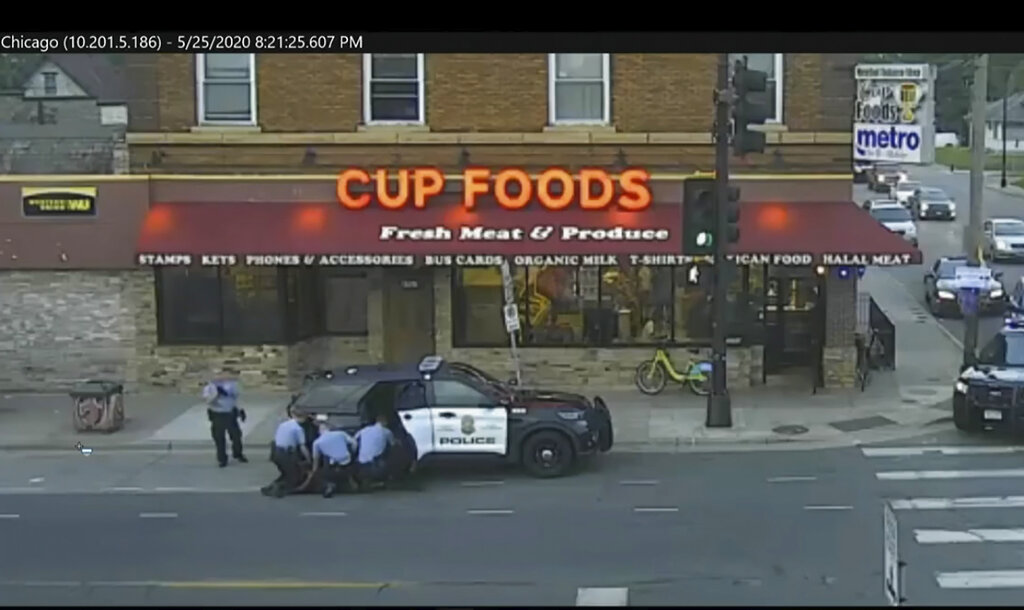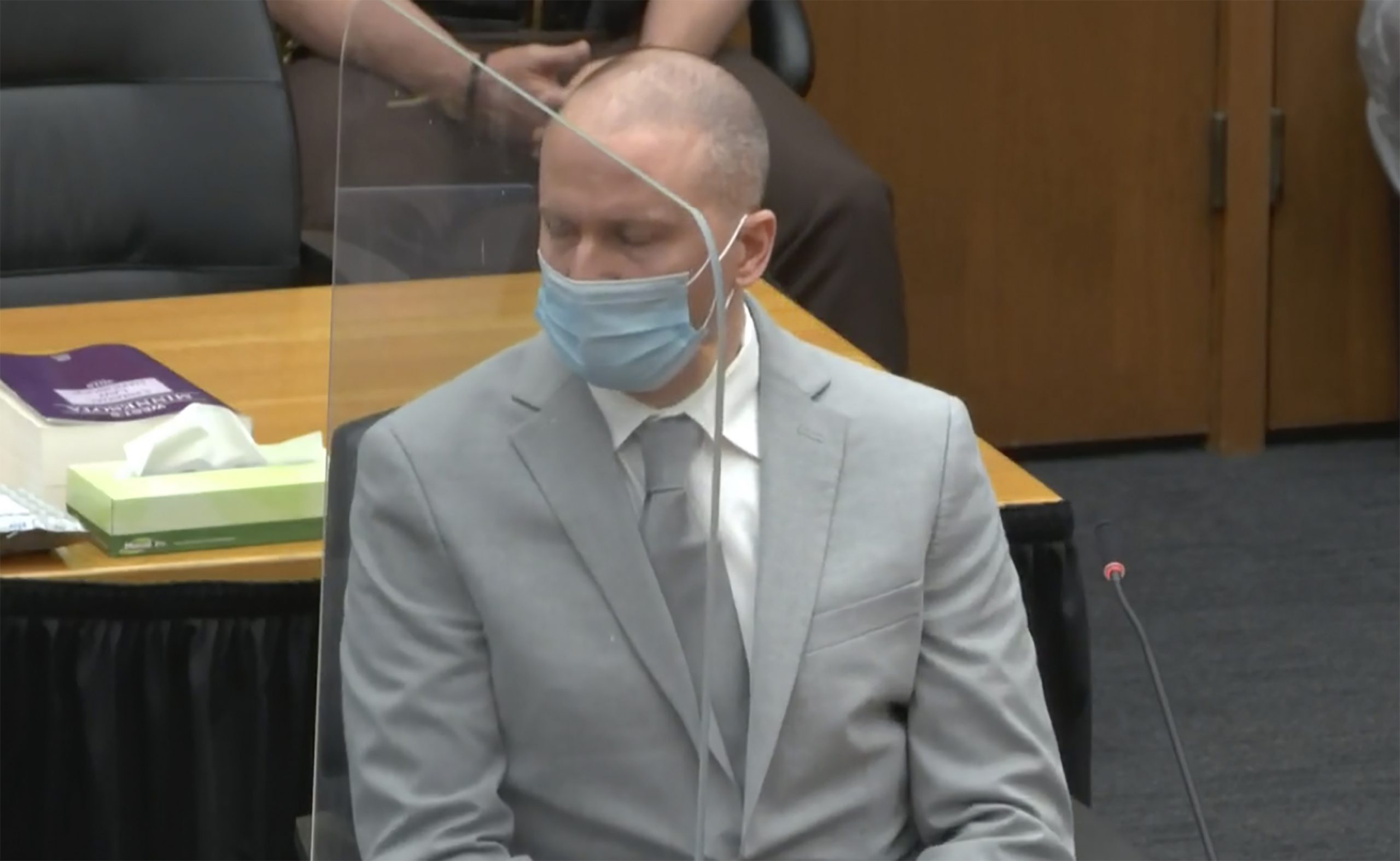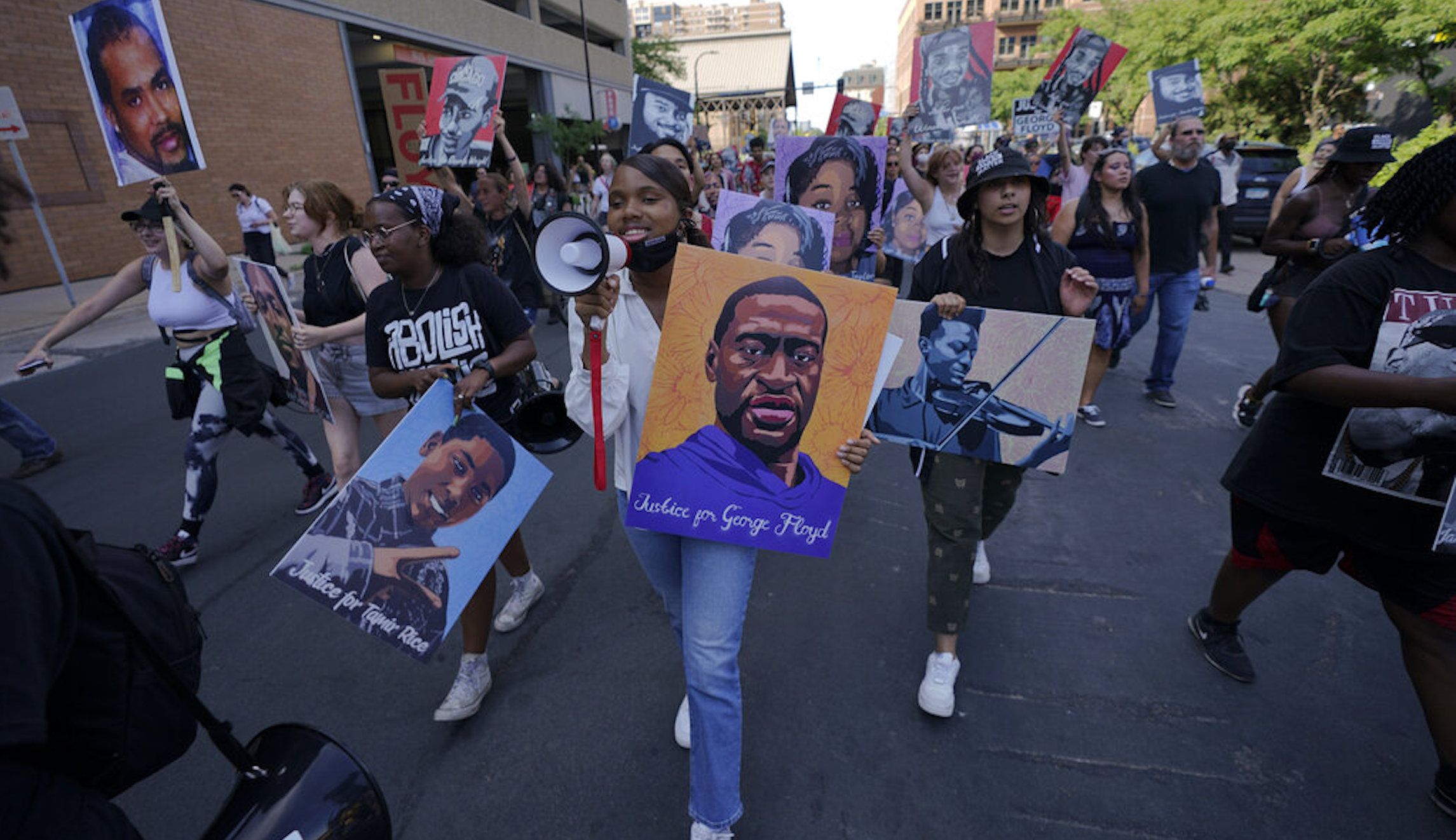
Opening statements began Monday in the federal trial of three former Minneapolis police officers charged in the death of George Floyd, a case that will focus on the responsibility fellow officers have of reining in colleagues when they witness misconduct.
Former Minneapolis Police Department officers J. Alexander Kueng, Thomas K. Lane, and Tou Thao were at the scene during the May 25, 2020, arrest-turned-killing of Floyd, a black man who begged for his life while ex-officer Derek Chauvin knelt on his neck for more than nine minutes. Floyd’s death, which was videotaped by a bystander and went viral, triggered coast-to-coast protests on police brutality and racial injustice.
“For second after second, minute after minute, these three CPR-trained defendants stood or knelt next to officer Chauvin as he slowly killed George Floyd right in front of them,” prosecutor Samantha Trepel said during opening arguments. “They chose not to protect George Floyd, the man they had handcuffed and placed in their custody.”
Kueng, Lane, and Thao, who have pleaded not guilty to both federal and state charges, signaled through their attorneys that they will place the fault for Floyd’s death squarely on Chauvin, who was convicted on state charges of second-degree unintentional murder, third-degree murder, and second-degree manslaughter.
Chauvin was sentenced to 22 1/2 years in prison last year. He pleaded guilty in December to separate federal charges and is awaiting sentencing in that case.
Tom Plunkett, the attorney for Kueng, highlighted the rookie status of his client and Lane. He said Kueng deferred to Chauvin and called him “sir.”
“You’ll see and hear officer Chauvin call all of the shots,” Plunkett said.
DEREK CHAUVIN SENTENCED TO MORE THAN 22 YEARS IN GEORGE FLOYD KILLING
In May, a federal grand jury indicted Kueng, Lane, and Thao on charges they violated Floyd’s constitutional rights when he was restrained during an investigation into whether he was trying to use a counterfeit $20 bill.
Specifically, Kueng, Lane, and Thao were charged with failing to render medical aid to Floyd. Kueng and Thao were also charged with violating Floyd’s right to be free from unreasonable seizure by not stepping in and stopping Chauvin while he knelt on Floyd’s neck.

Prosecutors will be tasked with proving Kueng, Lane, and Thao willfully violated Floyd’s constitutional rights.
Federal prosecutions of officers involved in on-duty killings are rare, and the government faces a high legal standard to show that the men knew that what they were doing was wrong but did it anyway.
Many of the same witnesses who testified at Chauvin’s state trial are expected to do the same during the federal trial of the former officers, including the then-17-year-old who recorded the incident and first responders.

Kueng and Lane had been full-time police officers for less than a week when Floyd was killed. Body-camera video showed Lane pulled a gun on the father of five within 15 seconds of encountering him. Lane did not announce who he was or why he was investigating Floyd. Chauvin showed up a few minutes later with Thao in tow. Body-camera footage showed Floyd saying he was claustrophobic before being placed face down on the street with Chauvin kneeling on his neck.
Lane, who held Floyd’s legs down, Kueng, who knelt on Floyd’s back, and Thao, who tried to block bystanders, had previously been scheduled to go to trial on state charges in August, but a judge delayed their trial so the federal case against them could go first.
DEREK CHAUVIN PLEADS GUILTY TO FEDERAL CHARGES IN GEORGE FLOYD KILLING
Lawyers for Kueng and Lane have argued that their clients were only following orders from Chauvin, the senior officer on the scene. Chauvin had been with the department for nearly two decades and was Kueng’s field training officer. He also informally trained and advised Lane, who asked Chauvin twice whether they should reposition Floyd. Kueng checked Floyd’s pulse and told Chauvin he couldn’t find a heartbeat. Despite this, Chauvin did not remove his knee from Floyd until a first responder showed up and moved him out of the way.
Thao said he was unaware of what was going on behind him because he was focused on crowd control but his own body-camera video contradicted the statement he made to state police investigators and showed him turning and looking multiple times at the scene unfolding with the three other officers and Floyd.

Jury selection in the federal trial began last week. U.S. District Judge Paul Magnuson told jurors to put aside their views of Chauvin and Floyd.
“This is a completely different case,” he said.
Eighteen people were chosen for the jury, with 12 deliberating and six being alternates.
CLICK HERE FOR MORE FROM THE WASHINGTON EXAMINER
The Associated Press reported that two of the jurors, one expected to deliberate and one alternate, appear to be of Asian descent. The rest are white and were picked from the Twin Cities area, the suburbs, and southern Minnesota.
The trial could last up to four weeks, Magnuson said. It’s unclear if any of the officers will testify in their own defense or if Chauvin will show up on behalf of his former colleagues.

